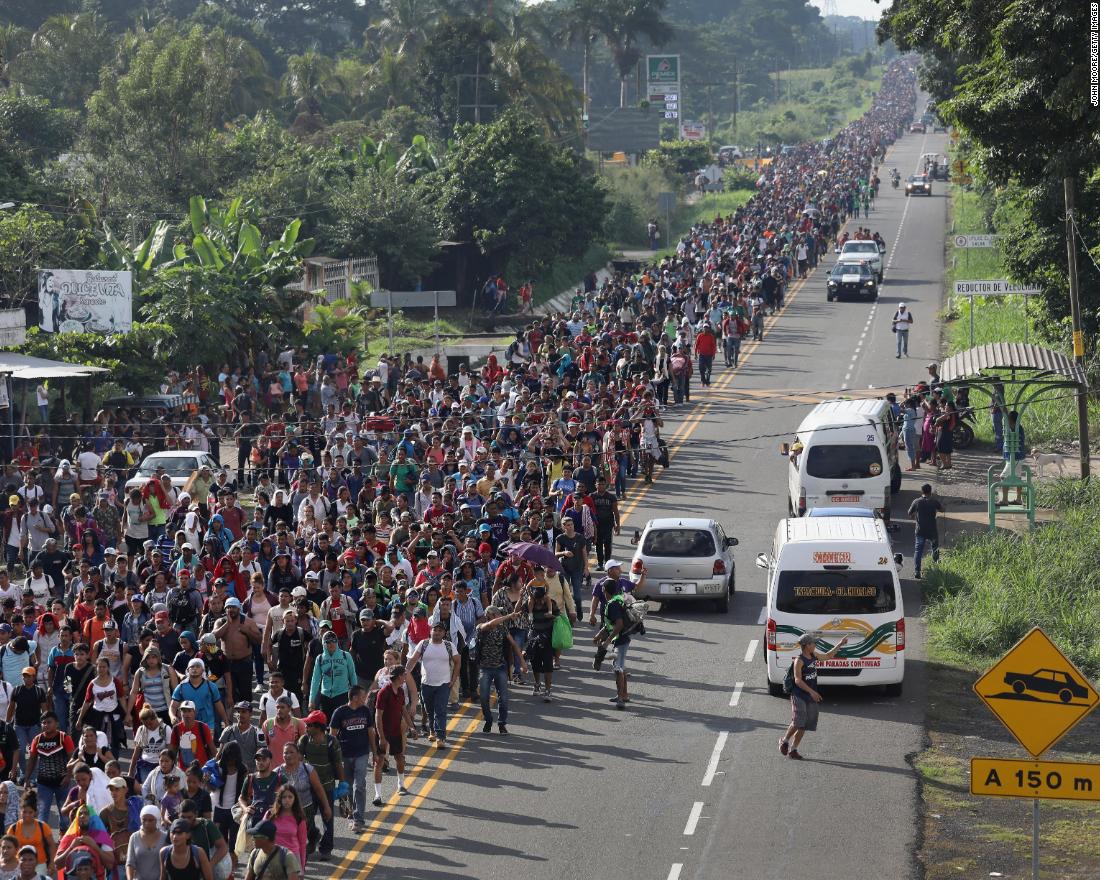Tuesday, October 23, 2018
We All Fall Short
We don't often look at Jesus' most famous parable from the perspective of the Samaritan. I, myself, have re-written the parable a number of times - I posted one here, part of a sermon, five years ago - but even while it was from the perspective of the "Samaritan" it was intended to speak to us as the wounded man.
I think about being the Samaritan today, as the plight of thousands of refugees and immigrants is systematically weaponized and ignored in our media. The left, apparently, doesn't think immigration polls well and the right sees the thousands of desperate people trying to reach the unwelcoming, relative comfort of the US as something to be feared. I don't watch cable news, but CNN and Faux are next to HGTV and ESPN at the gym, so I can't help but catch the headlines for an hour or so 3-4 times a week.
I've struggled with how to address the issues beyond simply the religious approach. As a follower of Jesus Christ, I can't see the world through the eyes of an American citizen, but only as a citizen of the Kingdom of God. Thus, borders and documentation don't mean much to me. People are people and we all deserve the same treatment no matter where we are or how we got there. Immigration isn't really a "debate."
Not everyone begins from the same perspective, though. US civil religion has infiltrated our culture enough that many people see themselves as US citizens first (or, worse, no difference between being a Christian and being an American - maranatha). Is there a way to approach this situation that goes beyond legalities and borders and fear - fear is the key element, as always, that we fight. We're challenged to be afraid of the other, of the sacrifice that loving someone else might mean for us.
That's where the Good Samaritan comes in. We see that story as a call to sacrifice for the other, even the one who is hated, called enemy. Jesus takes the question "who is my neighbor" and turns it into "what does it mean to be a neighbor." At the core of the parable is one line - "he was moved with compassion." The Samaritan saw the hated other in trouble and not just felt bad for him, but imagined himself in the same situation.
When we see desperate people fleeing for their lives - whether it be in Guatemala or Syria or those dark-skinned neighbors moving in from the city for a safer neighborhood and a better school district - our reaction cannot be "there might be a few bad apples mixed in, so I better avoid the whole lot." That's what our culture is doing right now. Better safe than sorry is an extreme reaction to fear. It might keep us physically safer, but it's killing our souls, diminishing our humanity, and literally costing thousands of vulnerable people their physical lives.
We must be moved with compassion - not just the heart-wrenching pain of seeing suffering. I suspect the left-leaning channels avoid the story because real relief for refugees in the US just isn't an immediate reality (not to mention it's a losing issue most places in the upcoming election). We don't like to feel sorry for people when there's not much we can do to alleviate the pain.
Compassion is something deeper - not just feeling another's pain, but identifying with the other in their pain. Until the plight of those refugees is our plight, until their future is inextricably tied up with our future, we are not truly seeing them, valuing them as humans of equal importance. I am guilty of this sin, of omission, or lack. I'm no better than CNN - "poor them; if only there was something we could do."
I don't think it's enough - not by far - but it's better than what we've been doing. Let's, all of us, people of faith or none at all, Democrats of Republican or those fed up with anything red and blue, let's pray or focus or meditate or whatever practice we employ to help form and shape ourselves into people different than we were this morning. Can we beg to be broken? Can we ask or strive to or be transformed into the kind of people who not just notice the plight of others, but internalize it?
We must see ourselves in the suffering, not on some superficial level, but deep down, intrinsically. They are us, not metaphorically, but quite literally. They are us; we are them. That is the hope for a bright and beautiful tomorrow. It seems impossible, but it is not.
May it be so.
Amen.
Labels:
citizenship,
compassion,
immigration,
mercy,
refugees,
Samaritan,
united states
Subscribe to:
Post Comments (Atom)

No comments:
Post a Comment